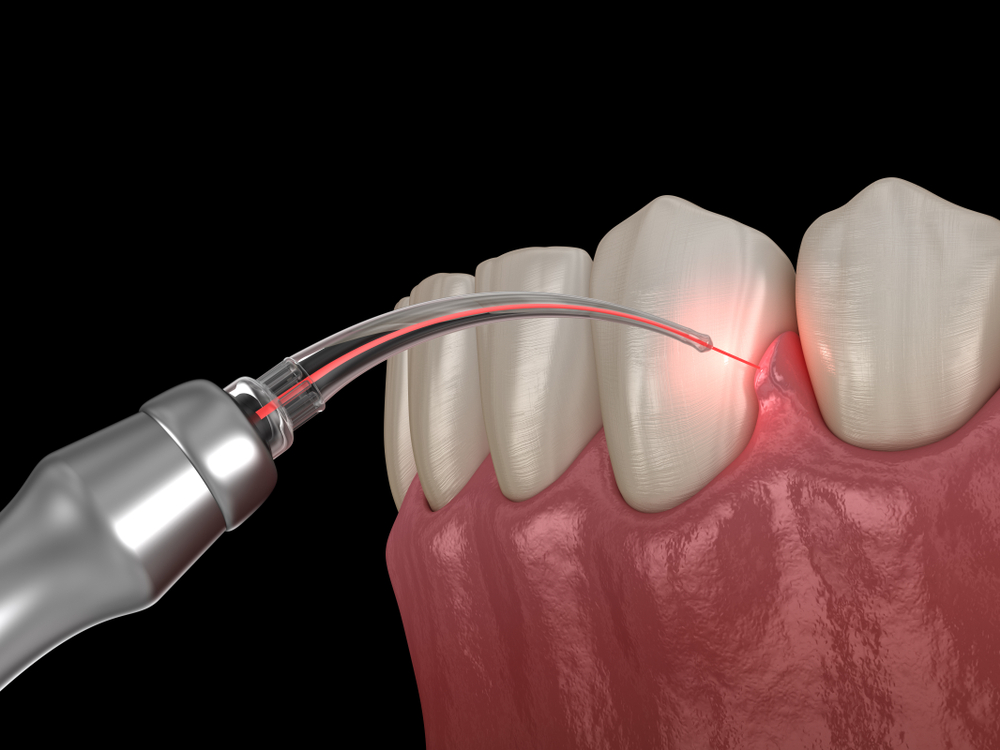Published: 02/06/2020
If you have contracted a periodontal gum disease, you may need to have laser gum surgery performed in Thousand Oaks, California to eliminate the problem entirely. It’s important to note that once you receive the news that surgery is the required course of action, two specific choices are likely to be available for you: conventional and laser. Understanding the differences between the two is key to making the right decision for your wellbeing.
Knife Versus Laser
The main difference between conventional and laser-based gum procedures is that the traditional route requires the use of a scalpel to open up the problem area and remove the infected tissue, while the laser is a less invasive way to do the job. Furthermore, there are a few areas where the two methods vary.
Pocket Depth: Gum surgeries done using the traditional method involve a lowering of the pocket depth by the the gum line. The effect is a reduction of the total gum line from two to fifteen millimeters everywhere. Teeth root systems may then suffer major pain because they are exposed to extreme temperatures. Lasers are less aggressive, extricating only damaged tissue.
Pain: The traditional method can be painful, possibly involving the removal of gum tissue and the use of sutures. Medication for pain is often recommended for the weeks or months that follow. Laser treatments tend to cause less pain and often do not need medications after completion, which means patients can return to normal more easily.
Length of Recovery: Where traditional surgeries cut the diseased tissue out entirely to eliminate the problem, lasers instead kill germs in the area, reducing swelling and retaining healthy tissue.
Long-term Results: Laser surgery tends to be the more predictable method regarding cell attachment and bone regeneration, as it promotes regrowth after the procedure is completed.
Call Now
For more information on this and the other dental services that we offer at Jacqueline L. Subka DDS, APC, contact our Thousand Oaks, California offices to schedule an appointment to speak with Dr. Jacqueline Subka.
Contact Us For An Appointment

